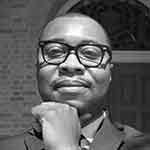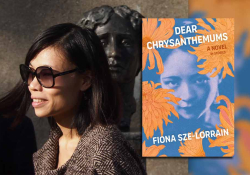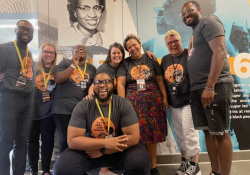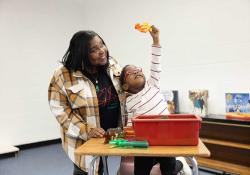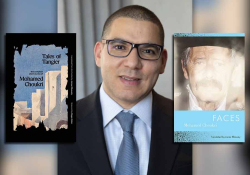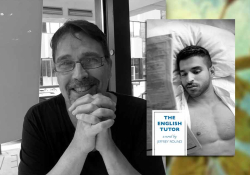Fostering Nonviolent Communities with LiveFree OKC: A Conversation with Jabee Williams
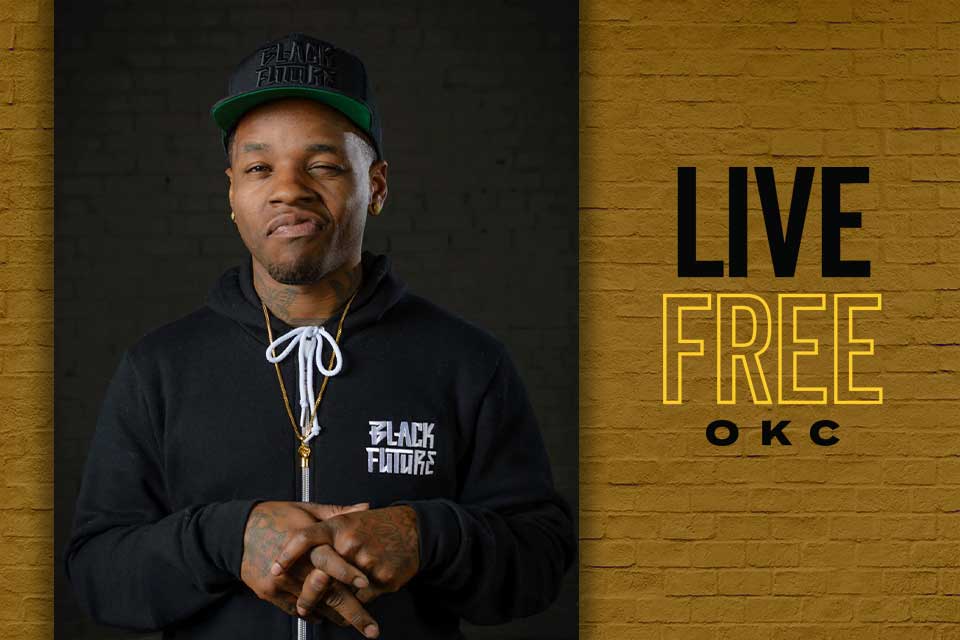 Bearing Witness: In his ongoing column, Karlos K. Hill highlights the efforts of cultural figures doing works of essential good around issues of social justice.
Bearing Witness: In his ongoing column, Karlos K. Hill highlights the efforts of cultural figures doing works of essential good around issues of social justice.
Tens of thousands of Americans now lose their lives every year as a result of gun-related violence. And yet, despite persistent public protests calling for gun reform, entrenched partisanship in both Congress and state legislatures has effectively squelched meaningful debate and change. This political paralysis has made it necessary for community leaders to take the lead in attempting to reduce gun violence, primarily by experimenting with community-based approaches. In Oklahoma City, community activists have established LiveFree OKC, a local chapter of a national social justice network, to combat the spike in gun deaths there. The former OKC chief of police praised LiveFree OKC for helping reduce gun violence since the organization’s creation in summer 2022.
I recently spoke with Jabee Williams, an Emmy Award–winning hip-hop artist and the organization’s co-founder. In our interview, he reveals how the new nonprofit is tackling the problem of gun violence in America’s twentieth largest city. This week (September 26–28) also marks the 2024 Peace Needs conference in downtown OKC.
Karlos Hill: Jabee, could you please say your full name for me?
Jabee Williams: My first name is Jonathan, my middle name is Blake, and my last name is Williams. I’m also a junior, so Jonathan Blake Williams Jr. was my full given name at birth.
Hill: When did you embrace the name “Jabee,” not just as an artist, but also as what you’re most comfortable going by?
Williams: I’ve been called J. B. my whole life because of my first and middle names, Jonathan Blake. That’s what my mama and my whole family have always called me. Only in school was I ever called Jonathan. My dad had another son after me, and his name is also Jonathan Blake Williams, so I wanted my own identity, and I wanted something I could pass down to my own son if I ever had one. Even in school I started signing my work “Jabee.” I chose that spelling because I wanted it to look like a rap name. I didn’t want it to look how you would expect it to look.
Hill: If readers could see the East Side through your eyes, what would it look like?
Williams: I think it’s important to give them some background on the history of the East Side first. There’s a rich Black history here: Ms. Clara Luper, Roscoe Dunjee, Ralph Ellison, Deep Deuce, to name just a few. Deep Deuce used to be one of the most thriving districts in the city, and not just for Black people, but for Oklahoma City in general. But it’s also important to know that there was a time on the East Side when Black people couldn’t move past a certain street. So, if you’re from the East Side, whether you know it or not, all those things are part of your DNA. People these days have a better understanding of what it means to have your roots in a place, so it’s easier for us to see value in the East Side now where we maybe weren’t able to see it before.
There’s a rich Black history here: Ms. Clara Luper, Roscoe Dunjee, Ralph Ellison, Deep Deuce, to name just a few.
Hill: You are a performing artist, a recording artist, a community leader, an activist, and an entrepreneur. And you have kids, so you’re also a father. You’ve obviously set yourself apart in a variety of ways, but not everyone is aware of how important community activism, community service, and community empowerment are to you. Given all that you do and all that you are, why do you consider service to community so important?
Williams: So often it seems we are just living. Anything good that the world has to offer, we get to enjoy it, but we don’t always understand what goes into it. When people come to the Juneteenth festival or to one of our Clara Luper events, they’re taking part just by showing up and having a good time, and that’s what we want them to do. But one day I realized that I need to do more than just show up when it’s cool or take pictures and bounce. I need to be somebody who gives back and pours in. There’s a lot that needs to be done, and if we aren’t giving back to the community, there’s so much we’re missing out on.
Hill: Such deeply felt ideas never come from the ether. They are born of experience or the influence of a mentor. What was the motivating factor for you? Who or what set you on this path and helped you see the value in serving?
Williams: A lot of it came from being on the other side—being that family who didn’t have anything. Standing in line for the free lunch, a free Thanksgiving basket, the free Christmas basket. Your mama’s friend at work giving her some shoes for you because you didn’t have any. I think about all the times when there was somebody who saw us in need and helped us. I think about watching my mom struggle, and all that she went through. Like when I would watch her take off every ring she had on her fingers to take them to the pawn shop and get money to pay bills, and then I’d see her cry when she wasn’t able to get her rings back. Those are times that I’ll never forget. When I see people who are dealing with the same things now, I know what that feels like, and I know there’s something I can do.
Hill: That leads us to LiveFree OKC and its connection to the national LiveFree network. Can you explain how you became involved with LiveFree and what kind of work you do?
Williams: On the national level, LiveFree does a lot of social justice work. A group of us took a trip to Oakland, where the organization was founded, to see and hear about the things they were doing out there. We were already doing some of it here in Oklahoma City, but we didn’t have a name for it. So, we took some training and did some workshops and boot camps to learn more about it. We were especially interested in their success with strategies for community violence intervention, so that’s been our pilot program at LiveFree OKC.
Our main goals are to help people avoid contact with law enforcement by helping them learn how to de-escalate a conflict without getting the law involved. We use what we call credible messengers or PeaceMakers: they are trained interventionists, but they are also people from the community who have been around, who have been impacted by gun violence. Maybe they’ve been incarcerated or they’re gang-affiliated, but whatever their past is, they’ve lived the life and earned a certain respect. They have the kind of reputation and community support that makes their words hold weight. They’re able to influence and mediate situations in ways the average person can’t.
Our main goals are to help people avoid contact with law enforcement by helping them learn how to de-escalate a conflict without getting the law involved.
Too many kids are getting shot, and too many people are getting locked up. Too many people are dying. Our main goal right now is to see a real decrease in gun violence in Ward 7 on the East Side, and hopefully throughout the city. We want to change the direction of our community in a positive way.
Hill: How serious a problem is gun violence in Oklahoma City, to the point that this organization is no longer just a good idea but a vital need for the community?
Williams: Access to guns is so easy now. It’s easier for a kid to get a gun than it is for him to buy a pack of cigarettes or get someone to buy him liquor. So many kids are strapped up now, and so many kids are dying from guns, that a lot of other people don’t feel like they can go anywhere without their own gun. Over the past few years, not only are we seeing more young people getting hit with gun charges, but older cats are getting violated because if they get pulled over and they’re not supposed to have a weapon because they’re a felon or whatever, they’re right back in the system because they didn’t feel safe in the streets without their gun. I don’t know how many funerals I’ve been to in the last five years where the person was killed with a gun, or how many people I know who’ve lost family members to gun violence. If LiveFree OKC had been up and running when those situations happened, our Peace Team probably could have intervened and de-escalated some of them.
Hill: If one of your PeaceMakers had gotten to one of those situations in time, what would that have looked like? How would a trained interventionist have de-escalated the conflict?
Williams: There was a kid named Cordae Carter who was shot and killed at a football game in Choctaw last year. It made the national news. One of our PeaceMakers was his barber, and we also work closely with the principal of the school where the kid who allegedly shot him goes. The shooting resulted from an issue those two kids had been having for a while. If we had been involved, our PeaceMaker could have offered to go with Cordae to the other kid’s school and meet with the principal. We might have had a conversation with the two kids separately and then brought them together with their parents. And if we had known they’d both be going to that football game, we could’ve been there too. Had we been doing our work at that moment so that we could’ve had eyes on both of them, things would have been different.
Hill: It sounds like your first step is to connect as quickly as possible with someone in the community who can help you, then make the people in conflict sit down for a conversation about why they should avoid letting their dispute escalate to the point of violence.
Williams: The important thing is to have the person who talks to these kids be someone they respect. In order to be a credible messenger, you have to be seen as legit. People need to know who you are and where you come from. That adds a level of respect, something you can only earn by being in the community like that. But you also have to be somebody who cares. A big part of our work is finding out what kinds of resources people need and helping them get those things.
For example, when we heard about a kid whose mama’s house had been getting shot up every weekend, we partnered with another group to patch the bullet holes and replace the broken windows. But we also do a lot of smaller things, like getting a homie a haircut or getting a crib for someone’s baby. You can tell somebody to be peaceful and stay off the streets, but if they go home and their girl is angry because the baby doesn’t have a bed or there isn’t any food in the icebox, words can only go so far. When the electricity’s been disconnected and your house is freezing because there’s no heat, it’s hard to stay out of the streets. Too often violence happens because of a lack of the kinds of resources and services that an everyday person might take for granted. It’s important to recognize that as part of the problem.
Hill: So the biggest thing you’re offering people is respect. You’re helping to build community by building relationships.
Williams: Once somebody has agreed to engage with LiveFree OKC, we partner him with a life coach, who is like a caseworker. They’ll do an assessment to figure out what he needs and what his goals are, and then the life coach and a PeaceMaker will work with him to make sure he can reach those goals. It’s not like we go, “Here’s a haircut, here’s some clothes, keep the peace, see you later.” We actually create long-lasting individual relationships with our clients.
You could come over here on Friday, Saturday, any time of the week, and you’ll see I’ve got the chairs set up out front, so that people can come up and chill. It’s important to have somebody who can be there for you—somebody you can sit down and talk your problems over with. That way the solution isn’t coming out of a bad situation. If a client calls and says, “I’m at a party, and I can tell that something is about to pop off. Can you come get me?”, we’ll swoop right over there and pick them up.
And when an innocent bystander recently got caught in a beef between two homies and was killed, we went to talk to his family because we’d heard that some of them were thinking about retaliating.
Hill: Now that it’s so easy to get a gun on the East Side, it sounds like you’re always on the lookout for violence in the community. You’ve put yourselves on the front lines of preventing gang violence, in particular, along with the kinds of interpersonal conflicts that can get out of control so quickly when everyone has access to a gun.
Williams: When a sixteen-year-old kid is walking around with a gun sticking out of his shirt because he’s having a beef with someone, that’s just going to make the other guy think, “Okay, I need to strap up too, just in case. I don’t want to have to worry about him shooting me.” Probably neither of them wants to shoot anybody or be shot at, but they’re not going to sit down and talk things out unless somebody helps them do it. We make that conversation happen. We’re just trying to figure out how we can keep them from killing each other.
Hill: As the leader of the organization’s Peace Team, how do you find your PeaceMakers? What makes someone a credible messenger?
Williams: All of our current PeaceMakers are people I grew up with. I approached them because I knew who they were and what they stood for; I was familiar with their history and their reputation in the hood. To be a credible messenger and do our kind of peace work, you really have to come from that side of the community and have those relationships.
To be a credible messenger and do our kind of peace work, you really have to come from that side of the community and have those relationships.
Hill: Experience and credibility—that’s not something you can teach someone. Either they have it or they don’t.
Williams: Yeah, it takes more than just having good intentions. You have to be somebody that understands the lifestyle or has been around these kinds of situations. We couldn’t even get these people in the room together if we didn’t have credible messengers.
Hill: LiveFree OKC has only been in existence since August 2023, and you’ve made a tangible difference in that short amount of time—and not just by preventing violence, but by helping people change their lives. How would you summarize your impact to date?
Williams: I don’t have any numbers to offer, but judging by the community response, I think we’ve had a big impact already. The community has really gotten behind us and started to support what we’re doing. People are also reaching out to us in different ways. A school principal or a parent or a member of another organization might contact us to say, “I’ve got a kid who is going down a bad road. I think he might be a good candidate for LiveFree.” Or a pastor might ask us to meet with a mother who’s concerned about her son. In that regard, I know we’ve had a big impact. But it’s not something we can measure yet.
Hill: Out of everything the organization has been able to accomplish since it was founded, what are you most proud of?
Williams: Seeing it actually get off the ground was a really proud moment for me, because it wasn’t an easy thing to do. But I’m proudest of the work that our PeaceMakers have been able to do and the connections they’ve been able to make, and the way we’ve been able to get people to understand what we do and believe in it. Right now our focus is the East Side, but there are other parts of town where the violence is even worse. If we could secure funding, I would like to see us have a larger footprint in Oklahoma City. I would like to see this city as a whole transform.
Hill: A community can’t flourish if there’s violence. I think of your PeaceMakers almost as a council of elders who are trying not just to prevent violence but to restore some level of peace and security. If that can happen, we will see more people move into the community, we will see more businesses start up, we will see more schools and parks open. And at that point things can really take off. By helping restore the peace, you are giving the community a chance to thrive.
Williams: You couldn’t have told me five years ago that I’d be where I am today. I’ve never liked hearing somebody say, “You can do anything if you just put your mind to it and work hard.” That’s not true for everyone, because we aren’t all born with the same opportunities and on the same level in society. None of this would have been possible had I not had the opportunity to go outside my neighborhood and see that the world is so much bigger than just the East Side. That expanded what I thought was possible, not just for me but for my entire hood. Even if we’re at the bottom of what society has to offer, the truth is that the bottom of what society has to offer isn’t the end. Even doing a little bit can help you get a little bit more, and then a little bit more after that. There’s so much more out there. We just need to see it and see how much we’re capable of.
August 2024
